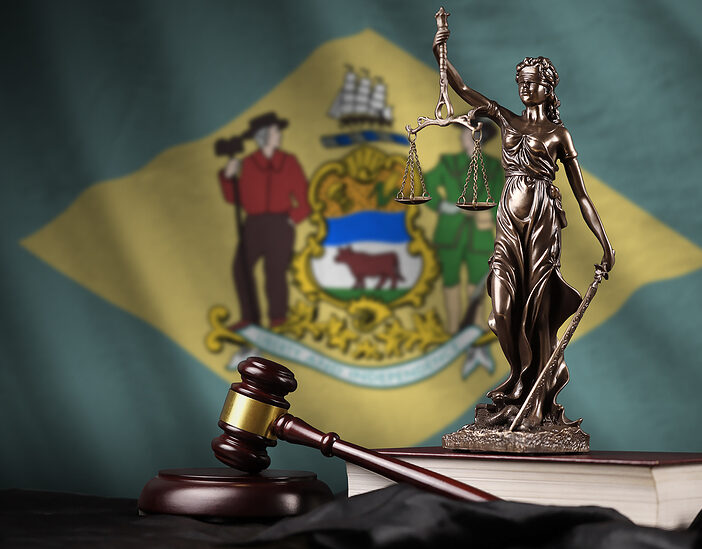A Delaware judge has thrown a wrench into climate change advocates’ use of state courts to advance their agenda.
In 2020, Delaware Attorney General Kathy Jennings took the climate activist fight against oil companies to state court, claiming “Exxon, Chevron, and other mega-corporations” were hiding the truth about global warming. Turning to state courts was part of a strategy among plaintiffs’ attorneys and progressive groups that, they hoped, would result in expensive judgments against the fossil fuel industry.
“Delaware joins a growing wave of communities that rightly seek to hold the fossil fuel industry accountable for lying about the climate change disasters they knew their products would cause,” Richard Wiles, executive director of the green group Center for Climate Integrity, said at the time.
Jennings wanted companies like Chevron and ExxonMobil – 31 companies in total – held liable for the impacts of climate change on the state of Delaware. She also accused them of “greenwashing” — misleading the public about the hazards of fossil fuel use.
But on January 9, Delaware Superior Court Judge Mary Miller Johnston dealt that strategy a major setback.
Johnston’s ruling held that the Clean Air Act preempts – and therefore the court dismissed – Delaware’s core allegations for public nuisance, trespass, and failure to warn since it sought damages for activity resulting from out-of-state or global greenhouse gas emissions. Delaware can only proceed with claims proving alleged injuries were the cause of emissions from sources within the state. Prevailing with that claim simply isn’t possible in this case, the judge found since in-state Delaware emissions cannot have a material effect on the global nature of climate change.
Judge Johnston rejected Jennings’ argument that energy company press releases and public relations were an actionable attempt allegedly to trick people about climate change. “Claims alleging misrepresentations, including ‘greenwashing,’ must be dismissed, with leave to amend with particularity,” Johnston wrote. The ruling was because Delaware “failed to specifically identify alleged misrepresentations for each individual defendant.”
Among the other fundamental flaws, Johnston found, was that the Delaware Consumer Fraud Act does not apply to Delaware’s claims. “Defendants have provided evidence showing that the general public had knowledge of or had access to information about the disputes, regarding climate change and effects” for “decades,” which “information and evidence [was] unrefuted by the State,” Johnston ruled.
“We are pleased with the Delaware Superior Court’s decision holding that the ‘claims in this case seeking damages for injuries resulting from out-of-state or global greenhouse emissions and interstate pollution, are pre-empted by the’ Clean Air Act and ‘beyond the limits of Delaware common law,’” said Theodore J. Boutrous Jr., of Gibson, Dunn and Crutcher, counsel for Chevron. “The global challenge of climate change requires a coordinated international policy response, not a series of baseless state and local lawsuits,” Boutrous added.
The lack of specificity also hurt the “greenwashing” charge, said Donald Kochan, Professor of Law and Executive Director of the Law & Economics Center (LEC) at the Antonin Scalia Law School at George Mason University.
“The judge’s ruling preserves the integrity of the pleadings rule that one must plead with particularity. You can’t go to court and say, ‘An entire industry did X, and now we want you to hold these individuals liable.’”
Kochan told DVJournal that even if that issue could somehow be overcome, it doesn’t address the biggest obstacle to the Delaware case — the fact that federal law and regulation preempts local actions. A Delaware court can’t do Congress’s job.
“The most significant part of this ruling is the judge’s recognition that when Congress speaks, the states must listen,” Kochan said. “And states need to realize that when the federal government has acted — in this case, the existence of a comprehensive air quality regime including the Clean Air Act — the states can’t create their own rules because they’re frustrated that Congress didn’t do more.”
Phil Goldberg, Special Counsel for the Manufacturers’ Accountability Project, said Johnston made the right call.
“The Delaware state court clearly recognized that regulating out-of-state and global greenhouse gas emissions is ‘beyond the limits’ of Delaware law. This ruling underscores the fact that determining how best to address climate change and its impacts should be addressed by Congress and federal agencies, not by a patchwork of state judges,” Goldberg said in a statement.
What this ruling does not do, both sides agree, is end this legal strategy targeting international energy companies in state courthouses. Delaware was just one of a growing list of cities, counties, and states using lawsuits against the fossil fuel industry.
Delaware was the 22nd municipality or state to file a lawsuit against Big Oil since 2017. The city of San Juan, Puerto Rico, and the state of California recently filed similar lawsuits.
While the court’s ruling was somewhat mixed, Kochan and other legal experts say it left states like Delaware facing a steep legal challenge if they want to move forward. Using state law to address a global issue was always problematic, and now Johnston’s ruling has narrowed that path even more.
Delaware Department of Justice (DOJ) Communications Director Mat Marshall said the state was grateful that the court denied the oil company’s attempts to have the entire case thrown out.
“We’re reviewing Judge Johnston’s opinion and analyzing next steps and are undeterred in our pursuit of justice for Delawareans enduring the cost of climate change.”

